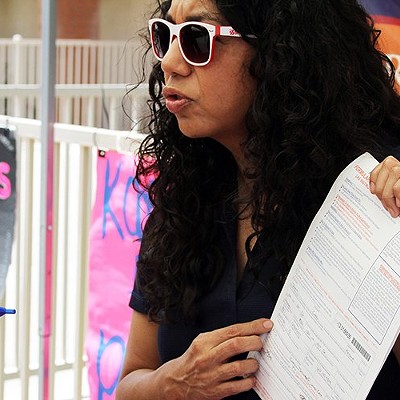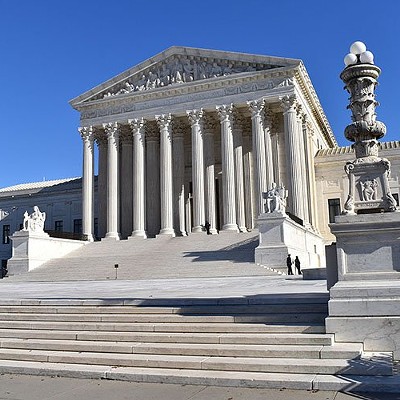When Republican Ward 6 representative Fred Ronstadt first ran for the City Council six years ago, on election night, he seemed to have narrowly won. An exceptionally high number of ballots that had no vote in the race, however; this led to a lawsuit that resulted in a recount. It was discovered that some of the paper punch-card ballots were defective, and just didn't register a vote. A time-consuming manual inspection of all the ballots followed, and it revealed that Ronstadt was still the winner.
In Florida, it was essentially the same scenario, except on a much larger and more important stage. So after that embarrassing fiasco, a year ago Congress adopted the Help America Vote Act. It requires the elimination of punch-card ballots by next November, mandates the creation of a statewide centralized voter registration system, and stipulates that by 2006 voting equipment for the disabled will be available in every precinct in the country.
To comply with the Act, the office of Arizona Secretary of State Jan Brewer devised a relatively low-cost plan. While the federal government has tentatively authorized $58 million to fund the state's effort, Brewer's proposal looks to cost only $40 million.
"Using a fiscally conservative approach has really paid off," says Deputy Secretary of State Kevin Tyne. He indicates that the federal money will probably come in slowly over the next several years, and not all the funds might be forthcoming from deficit-conscious Washington. Based on that, current estimates are that Arizona may eventually get only $40 to $45 million to comply with the law.
To date, Arizona has received only a fraction of the money, and about $3.5 million of it is currently being used to replace the punch-card voting systems still in use in nine mostly rural counties across the state. The goal of the program, titled "Adios Chad," is, according to Tyne, to rid the state entirely of punch-card ballots by the Democratic Party primary on Feb. 3. They would be replaced in every voting precinct by optical scan equipment that electronically reads a completed "fill-in-the-blank" ballot, and a contract has been awarded to obtain the new machines.
Even though its election department director, Gilberto Hoyos, says it never had problems with the punch-card system because of tight procedures for dealing with questioned ballots, Pinal County north of Tucson will be receiving 65 new optical-scan ballot readers. Hoyos estimates that combined with other voting materials to be acquired, about $620,000 of federal funds will be spent to bring the county into compliance with some of the provisions of the new law.
Since Pima County has been using optical scanners for the past several years, it will not directly benefit from this initial switch in voting systems. But, says Brad Nelson, the county's election director, within three years, that could change. By then, every precinct in the country is to have equipment that makes voting for the disabled easier.
To allow the blind and others to vote more independently, Nelson says devices such as touch screens with attached earphones that provide information in the voter's own language are required to be available.
After its hanging chad problems in 1997, the City of Tucson went with optical scan equipment, most of which it rents from Pima County. Next month's mayoral contest will be the second where it has been employed, and after the election is over, city staff members say they will look at what changes, if any, the new federal legislation will impose on local election procedures.
When she was running for office last year, Secretary of State Brewer said it was "very important" for Arizona to switch entirely from punch-card to optical-scanner voting equipment. She was so insistent this was necessary, she suggested that in cash-strapped Arizona private donations might be used to purchase some of the new machines. But now, because of the "Help America Vote Act," that hat-in-hand approach won't be necessary to hopefully ensure there are no more repeats of the problems experienced in Florida 2000.












